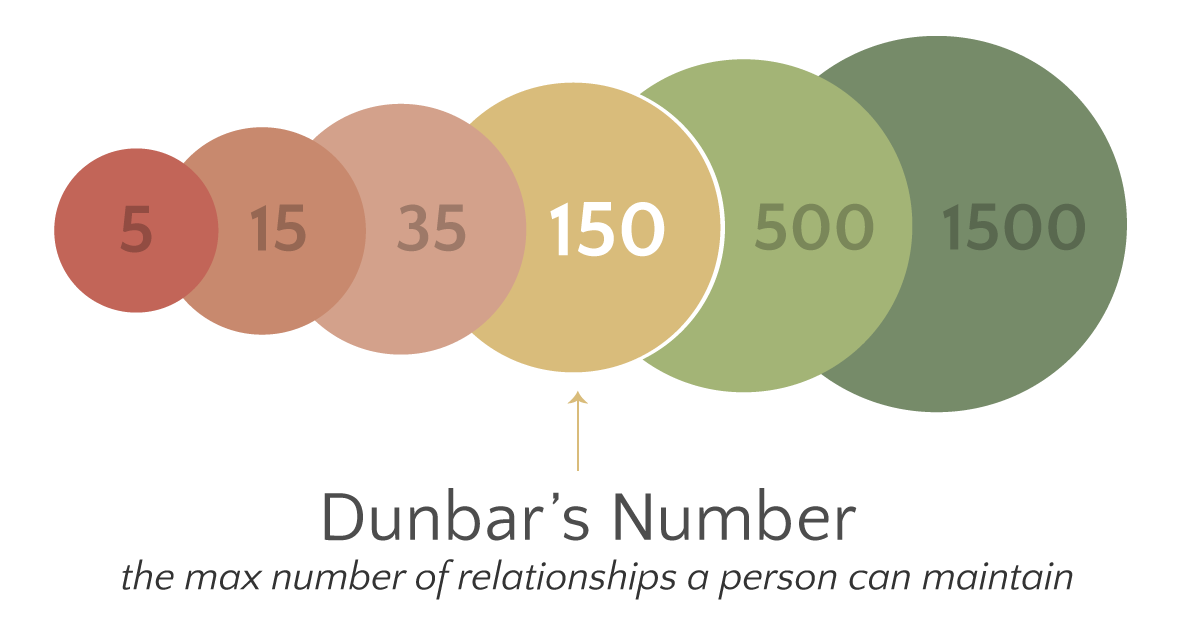# Wikipedia Authors - Dunbar's Number (Highlights)

## Metadata
**Review**:: [readwise.io](https://readwise.io/bookreview/25338840)
**Source**:: #from/readwise
**Zettel**:: #zettel/fleeting
**Status**:: #x
**Authors**:: [[Wikipedia Authors]]
**Full Title**:: Dunbar's Number
**Category**:: #articles #readwise/articles
**Category Icon**:: 📰
**URL**:: [en.wikipedia.org](https://en.wikipedia.org/wiki/Dunbar%27s_number)
**Host**:: [[en.wikipedia.org]]
**Highlighted**:: [[2023-03-16]]
**Created**:: [[2023-03-18]]
## Highlights
- **Dunbar's number** is a suggested cognitive limit to the number of people with whom one can maintain stable social relationships—relationships in which an [individual](https://en.wikipedia.org/wiki/Individual) knows who each person is and how each person relates to every other person.[[1]](https://en.wikipedia.org/wiki/Dunbar%27s_number#cite_note-dunbar92-1)[[2]](https://en.wikipedia.org/wiki/Dunbar%27s_number#cite_note-2) This number was first proposed in the 1990s by British [anthropologist](https://en.wikipedia.org/wiki/Anthropology) [Robin Dunbar](https://en.wikipedia.org/wiki/Robin_Dunbar), who found a correlation between primate brain size and average social group size.[[3]](https://en.wikipedia.org/wiki/Dunbar%27s_number#cite_note-facebook_study-3) By using the average human brain size and extrapolating from the results of primates, he proposed that humans can comfortably maintain 150 stable relationships. ([View Highlight](https://read.readwise.io/read/01gvkwfckp6ebad9817sq1t1nj)) ^491987892
Dunbar's number is a suggested cognitive limit to the number of people with whom one can maintain stable social relationships. It was proposed by British anthropologist Robin Dunbar, who found a correlation between primate brain size and average social group size. He theorised that humans can comfortably maintain 150 stable relationships, with a 95% confidence interval of 100 to 230. It has become of interest in anthropology, evolutionary psychology, statistics, and business management, and has been applied to online social networks and communication networks. Alternative numbers have been proposed, such as the Bernard-Killworth estimate of 290, which is double Dunbar's estimate. The number has also become popularized in books and podcasts, with discussions of its implications in explaining phenomena such as racism and xenophobia.